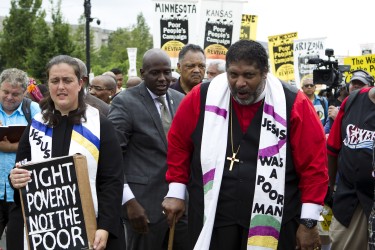In 1996, Christian Right leader Ralph Reed issued a statement that would become political scripture for religious conservatives. “I would rather have a thousand school board members than one president and no school board members,” Reed declared. By winning school elections, the theory went, conservatives would also win America’s battles over evolution instruction, sex education and school prayer.
Last May, former Donald Trump adviser Steve Bannon made a similar comment on his podcast. “The path to save the nation is very simple — it’s going to go through the school boards,” Bannon predicted. But Bannon pointed to a very different set of issues: critical race theory and the 1619 Project. He didn’t mention religion at all.
As angry parents converged on school boards in recent months to decry anti-racist curricula, headlines blared about the culture wars’ return to schools. In fact, these conflicts never left. They instead changed their focus, alternating between religion and history (and lately epidemiology). Our most contentious battles used to concern God and his role in the universe. Now they’re about the nation, and what we want it to be.
That would be fine — indeed, it would be fantastic — if we shared a common language and vocabulary for deliberating these differences. We could explore them in our classrooms, asking students how they imagine America: past, present and future. But we are splitting into mutually hostile tribes, which makes real conversation almost impossible. What should be a teachable moment for our children has become another dividing line between their parents. Even the question of masks in schools is now a take-no-prisoners struggle, pitting different versions of America against each other.
To be sure, we have always fought over who we are. In the 1920s, most notably, the Scopes trial triggered a campaign by fundamentalist and evangelical Christians to block the teaching of evolution. Yet fierce history wars also flared during these same years, as ethnic and racial minorities joined hands with white patriotic societies to blast textbooks that allegedly undermined the Founding Fathers. By emphasizing the economic motivations for the American Revolution and the Constitution, the argument went, history books diminished the grandeur of the nation itself.



















